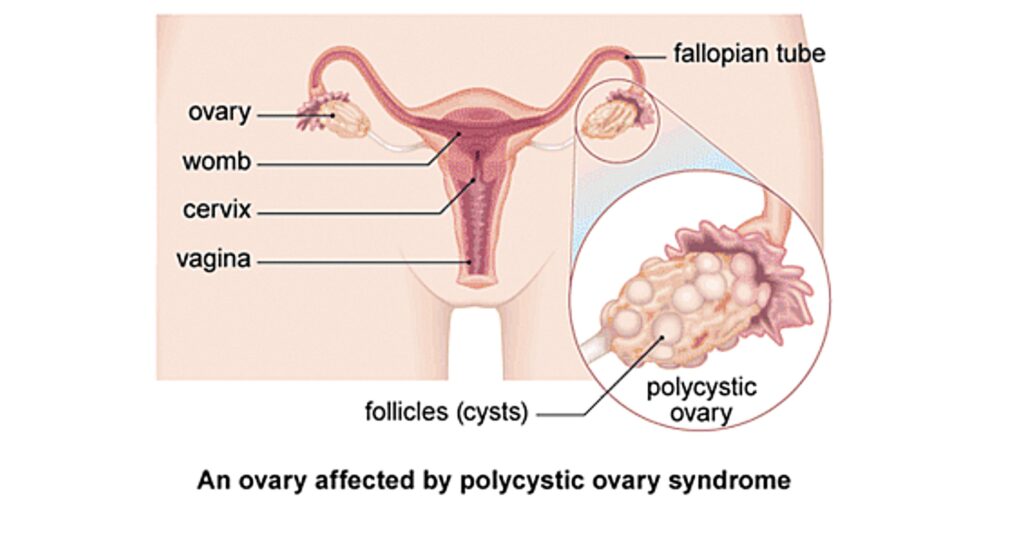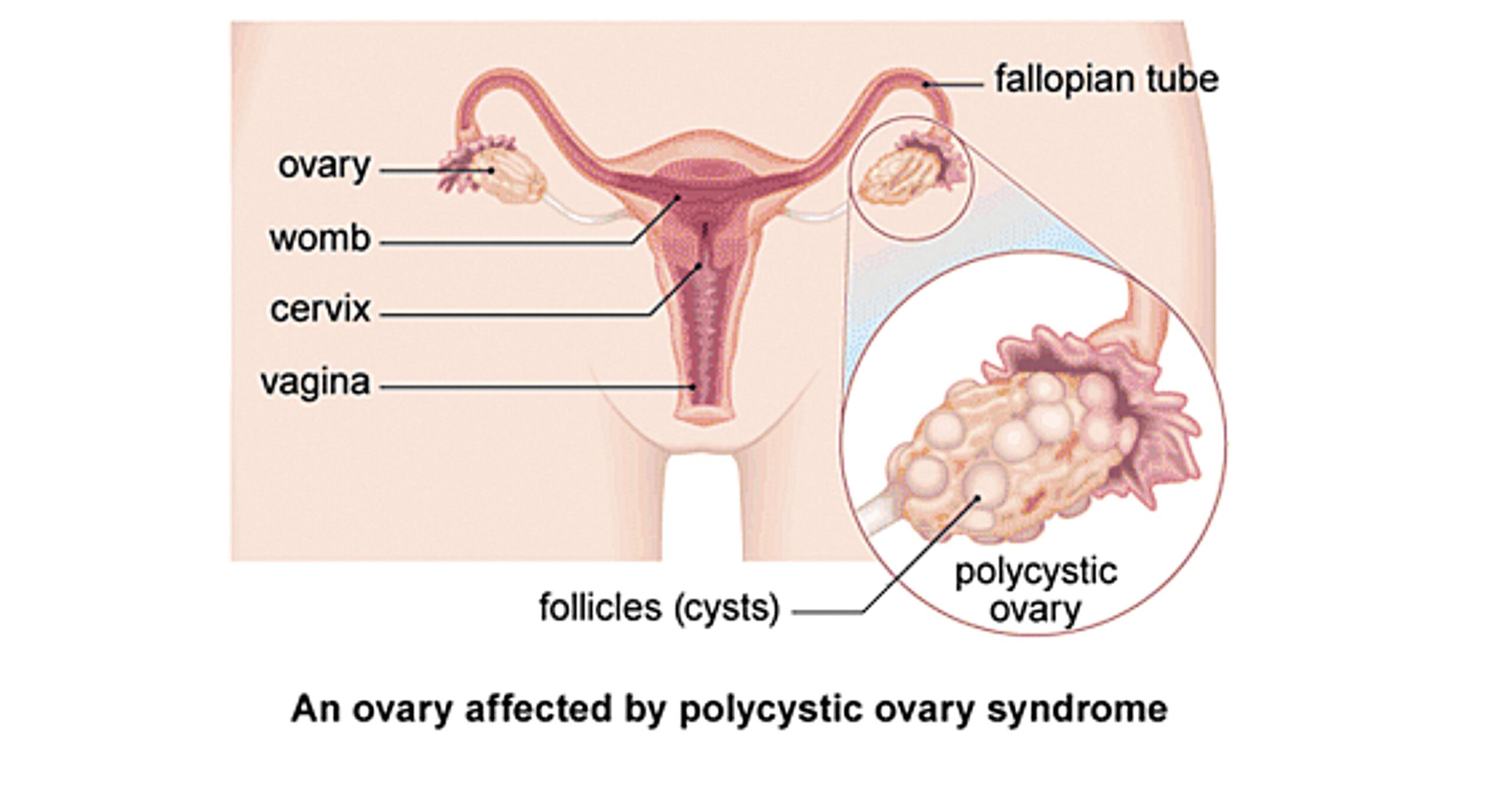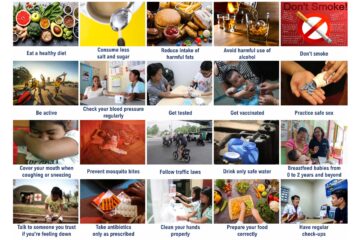Polycystic ovary syndrome (PCOS)
Expert reviewer, Dr Robin Crawford, Consultant Gynaecologist
Next review due August 2021
Polycystic ovary syndrome (PCOS) is a condition that affects the way your ovaries work. This can make it more difficult to get pregnant. PCOS can cause irregular periods, unwanted hair on your body and face, and acne. It is also associated with diabetes.
There is no cure for PCOS but there are treatments that can help to ease symptoms, prevent complications and improve your chances of having a baby. Getting medical advice as soon as you notice a problem can also help to prevent complications.
Dr Harvinder Chahal – Polycystic ovary syndrome
Dr Havinder Chahal, Consultant Endocrinologist at Bupa’s Cromwell Hospital, talks about polycystic ovary syndrome (PCOS).
More about polycystic ovary syndrome
You have two ovaries and they’re part of your reproductive system. They store and release eggs, and they produce sex hormones. About once a month, one ovary should release an egg ready to be fertilised.
Before an egg is released, it develops in a small fluid-filled swelling called a follicle. More than one follicle starts to develop, but usually only one becomes a fully mature egg. If you have a polycystic ovary, 12 or more follicles start to grow, but none develop into an egg that can be fertilised. These follicles become cysts that stay on your ovaries and contain undeveloped eggs.
You can have lots of cysts on your ovary without having polycystic ovary syndrome (PCOS). You can also have PCOS without having any cysts on your ovaries.
Symptoms of polycystic ovary syndrome
The symptoms of polycystic ovary syndrome (PCOS) usually start around the time of puberty through to your early 20s. Some women also develop symptoms after they put on weight or after they stop taking the oral contraceptive pill. Others find out they have PCOS when they see their doctor because they’re having trouble getting pregnant.
The main symptoms of PCOS include:
- irregular periods, eight or fewer in a year and sometimes none at all
- problems getting pregnant (infertility)
- being overweight or finding it hard to lose weight
- having more hair than usual, often on your top lip, chin, around your nipples and in a line down from your tummy button – this is called hirsutism
- thinning hair and hair loss
- acne
- patches of dark thick skin in your armpit or around your groin or neck
- sleep apnoea, a condition that affects your breathing and how you sleep
- anxiety, depression, mood swings and low self-esteem
If you have any of these symptoms, see your GP.
Diagnosis of polycystic ovary syndrome
Your GP will ask about your symptoms and examine you. They will also ask you about your periods and your medical history. They will look for any signs of polycystic ovary syndrome (PCOS) and try to rule out any other conditions that are associated or can cause similar symptoms (for example, diabetes). You might be asked to have some of the following tests.
- Blood tests to measure your hormone levels, to check for other conditions and to see if you have developed any complications.
- An ultrasound scan to see if you have cysts on your ovaries. The scan can look at your womb from the outside (through your lower abdomen) and from the inside (using a device that goes into your vagina).
If your GP thinks you may have severe PCOS or problems with infertility, they’ll refer you to see a specialist doctor.
Worried about your gynaecological health?
Get a picture of your current health and potential future health risks with one of our health assessments. Find out more about health assessments >
To book or to make an enquiry, call us on 0370 218 7861^
Worried about your gynaecological health?
Treatment of polycystic ovary syndrome
There’s no cure for polycystic ovary syndrome (PCOS) but there are treatments that can help to ease symptoms, prevent complications and improve your chances of having a baby.
Because there is no treatment that can balance your hormones and treat all the symptoms together, your treatment will focus on managing separate symptoms. The aim of your treatment will depend on your situation, and the symptoms you have. If you want to get pregnant, then your treatment will focus on your fertility and giving you the best chance of having a baby. If you’ve had your family or don’t want to become pregnant, then your treatment will focus more on managing your symptoms.
PCOS can increase your risk of developing long-term health problems such as heart disease, womb cancer and type 2 diabetes. So part of your treatment will be to reduce your overall risk of developing these conditions.
Self-help treatments
Making changes to your lifestyle can help to control your symptoms, improve your fertility and reduce the chance of long-term health problems. Your doctor may suggest that you do the following.
- Lose weight if you’re overweight. Even a small amount of weight loss can sometimes mean you start ovulating again and having more regular periods. Losing weight can also help to ease mental health conditions such as anxiety and depression.
- Eat a healthy, balanced diet and be active so as to help control your weight.
- Eat a low GI (glycaemic index) diet, which means eating foods that cause your blood sugar levels to rise slowly – this can help to ease your symptoms.
For tips and advice on how to eat healthily and be more active, see our section ‘Related information’.
If you have more hair than usual, you can try different hair removal techniques, such as hair-removing creams, waxing, shaving, electrolysis or laser hair removal. Or you could give bleaching products a go.
Medicines
Which medicines your doctor suggests will depend on whether or not you’re planning to get pregnant. If you’re trying to get pregnant, the following medicines may help.
- Metformin may help you to start ovulating again and make your periods more regular if losing weight hasn’t helped.
- Fertility medicines such as clomifene citrate or injections of gonadotrophins can help your ovaries to release eggs. If these medicines don’t work, your doctor may suggest fertility treatment such as IVF (in vitro fertilisation).
If you’re not trying to get pregnant, the following medicines may help.
- Oral contraceptives can stop your ovaries from producing too much testosterone. This can help to improve any acne, make your periods more regular and reduce the amount of hair you have.
- If you can’t take oral contraceptives or they don’t work for you, your doctor may prescribe a cream to reduce extra hair growth.
- Medicines such as orlistat can sometimes help you lose weight if lifestyle changes aren’t working.
- You may be offered co-cyprindol as a treatment for acne and extra hair growth. It can also make your periods more regular.
Always read the patient information leaflet that comes with your medicine. If you have any questions, ask your pharmacist or doctor for advice.
Surgery
If medicines don’t work, your doctor may suggest you have an operation to improve your fertility.
If you’re trying for a baby, one option is a keyhole procedure called laparoscopic ovarian drilling. This reduces the amount of tissue in your ovaries which changes the balance of hormones and can cause your ovaries to release eggs again. Surgery is usually only considered if other treatments have failed.
Causes of polycystic ovary syndrome
Doctors don’t know exactly what causes polycystic ovary syndrome (PCOS), but it’s likely to be a mix of things.
- The condition may run in families, so your genetics may be part of the reason why you develop it. You may have more risk of developing PCOS if a close family member such as your mother or sister has the condition.
- Some of the hormones in your body may be out of balance. Your body may produce too much oestrogen, luteinising hormone and testosterone.
- Your cells may be resistant to insulin. Insulin helps your body to control the level of sugar in your blood. If your cells are resistant to it, your body makes more than it should. The extra insulin may cause your ovaries to make too much testosterone, which can stop them from releasing an egg each month.
Complications of polycystic ovary syndrome
One of the main complications of polycystic ovary syndrome (PCOS) is infertility, which means it’s more difficult to become pregnant. If you have PCOS and get pregnant, you’re more likely to develop diabetes, high blood pressure or pre-eclampsia and your baby is more likely to be born early.
PCOS can cause long-term health conditions for some women because of hormone imbalance and changes to the amount of insulin in your body. These health problems include type 2 diabetes and obesity, which means you are also more likely to develop the following conditions:
- sleep apnoea – this is when you have problems breathing while you’re asleep, which can make you extremely tired during the day
- heart disease
- womb cancer
- depression and anxiety
Diet and exercise can significantly reduce the chances of obesity and diabetes and, therefore, the chances of developing the other conditions. If you’re worried about getting pregnant or developing complications, talk to your doctor.




